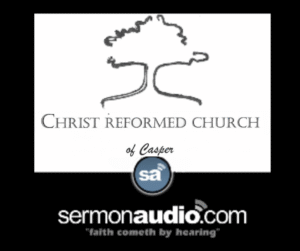LORD’S DAY 33
- In how many things does true repentance or conversion consist?
In two things: the dying of the old man,1 and the making alive of the new.
[1] Rom. 6:4–6; Eph. 4:22–24; Col. 3:5–10; 1 Cor. 5:7.
- What is the dying of the old man?
Heartfelt sorrow for sin, causing us to hate and turn from it always more and more.1
[1] Rom. 8:13; Joel 2:13.
- What is the making alive of the new man?
Heartfelt joy in God through Christ,1 causing us to take delight in living according to the will of God in all good works.2
[1] Rom. 5:1; 14:17; Isa. 57:15. [2] Rom. 8:10–11; Gal. 2:20; *Rom. 7:22.
- What are good works?
Those only which proceed from true faith,1 and are done according to the law of God,2 unto His glory,3 and not such as rest on our own opinion4 or the commandments of men.5
[1] Rom. 14:23. [2] 1 Sam. 15:22; Eph. 2:10. [3] 1 Cor. 10:31. [4] Deut. 12:32; Ezek. 20:18, 20; Isa. 29:13. [5] Matt. 15:9; *Num. 15:39.
Change of Heart
On the subject of good works, the Christian is often caught in a dilemma. This is the tension between forgiveness and the call to righteous living. This is an uncomfortable tension, as tensions usually are, the Scripture makes clear and repeated calls for us to repent and turn away from our sin, combined with the fact that no sinner ever completely succeeds in doing so in this life. The Scriptures also unambiguously teach that we are forgiven our sins without any merit of our own, solely because of the righteousness of Christ, for all those who believe. The great temptation is to try to reduce this tension in one of two ways. The first way is the way of legalism, of reducing the true requirements of God’s law to something we can actually do, so that we can think of ourselves as having successfully completed the obligation to fulfill the law, usually by focusing on ceremonies or outward moral behavior. The second way is the way of antinomianism (anti-law), meaning a downplaying or denying the law’s call to change which resolves the tension by focusing entirely on the fact of our forgiveness and neglecting the call to repentance.
It is vital, however, that we not try to remove the tension between forgiveness and the obligation to repent, that we simply live with it. Not only is this true because these attempts to resolve this tension inevitably leads to grave error, but also because this tension is the driving force in our sanctification. Both elements have to be present, the sure conviction of our forgiveness and the need to strive for righteousness. The knowledge of my complete forgiveness combined with the urging of the law to change, not out of fear or guilt but out of love and thankfulness, provides the impetus for a godly striving against sin that does not compromise either the purity of God’s law or the free grace of the gospel. The fabric of my salvation is woven on this loom, with the threads stretched between these two principles.
The Catechism instructs us in this week’s reading in what this repentance looks like. There are two elements, the dying of the old man and the making alive of the new (q. 88). This reflects the common Biblical pattern when discussing repentance, which is “putting off and putting on”. “Let him that stole steal no more, but rather let him labor” (Eph. 4:28) is one very simple and representative example. The evil behavior is rebuked, and the corresponding righteous behavior is enjoined. This is necessary, for man must live by a principle. The principle of self-worship and self-indulgence drives the sinful behavior of the flesh. So I must put that away. But a man cannot live without a principle, and therefore it is never sufficient merely to tell someone not to sin in some particular way any more. Instead, there must be a substitute of righteous behavior in the place of the sinful. The thief is a parasite, taking from the community whatever he wishes and giving nothing back. The opposite of that is man as a producer, laboring for sufficient wealth to take care of his own family and having enough left over to help the poor. The Catechism describes this same process as the “dying of the old man”, meaning the progressive rejection of false and sinful patterns of thought which lead to sinful behavior, and the “making alive of the new”, which is the gradual adoption of the way of thinking and behavior we are taught in Scriptures instead.
In both cases this is “heartfelt”, meaning that this is primarily not about changes in behavior, but changes in our values. People are ultimately going to do what they want to do, what they value, so the solution to the problem of sin is never simply to stop doing something, because you will fail. If you want to sin more than you want to please God, then you will sin. Consequences for sin might hold you back to some degree, but people find a way around them, or try to minimize those consequences, but people ultimately are going to do what they want to do. So if we simply focus on behavior, we will always fail to produce any real change. Instead we must learn to identify what is going on in our hearts, what it is about our values, that is driving us to behave the way we do. Ultimately the answer to that is always the same, that we think we are the gods of our own lives and should please ourselves with the things of this world, which always results in sinful behavior.
So becoming a Christian is all about changing values, coming to recognize that every desire is satisfied in Jesus Christ, and that therefore the best thing for us, the thing that will ultimately make us the happiest, is to stop focusing on what will please us and make us happy and to start focusing on pleasing God and doing His will instead.
The change that is needed is on the level of our heart, the most fundamental level of our being, and therefore requires an outside agent to accomplish it, further proof of our utter dependence on God’s power for our salvation. As we are engaged in this process, we must be in prayer to ask God to do this work, to change our values, to teach us that everything we need and desire is in Christ, and therefore to stop chasing the foolish lies of this world and our own flesh to make us happy.
All are welcome at Christ Reformed Church! We worship at 10 AM Sunday morning at 600 W. 21st St, in College Heights Baptist’s old sanctuary.


Comments are closed, but trackbacks and pingbacks are open.